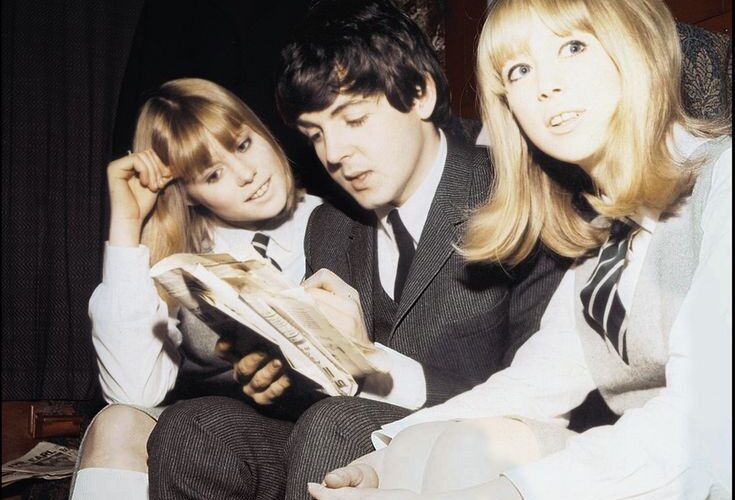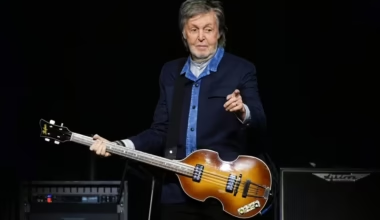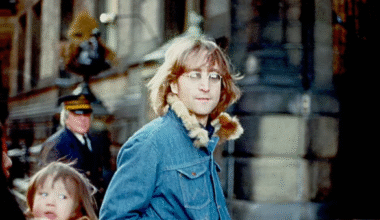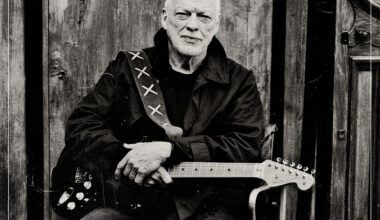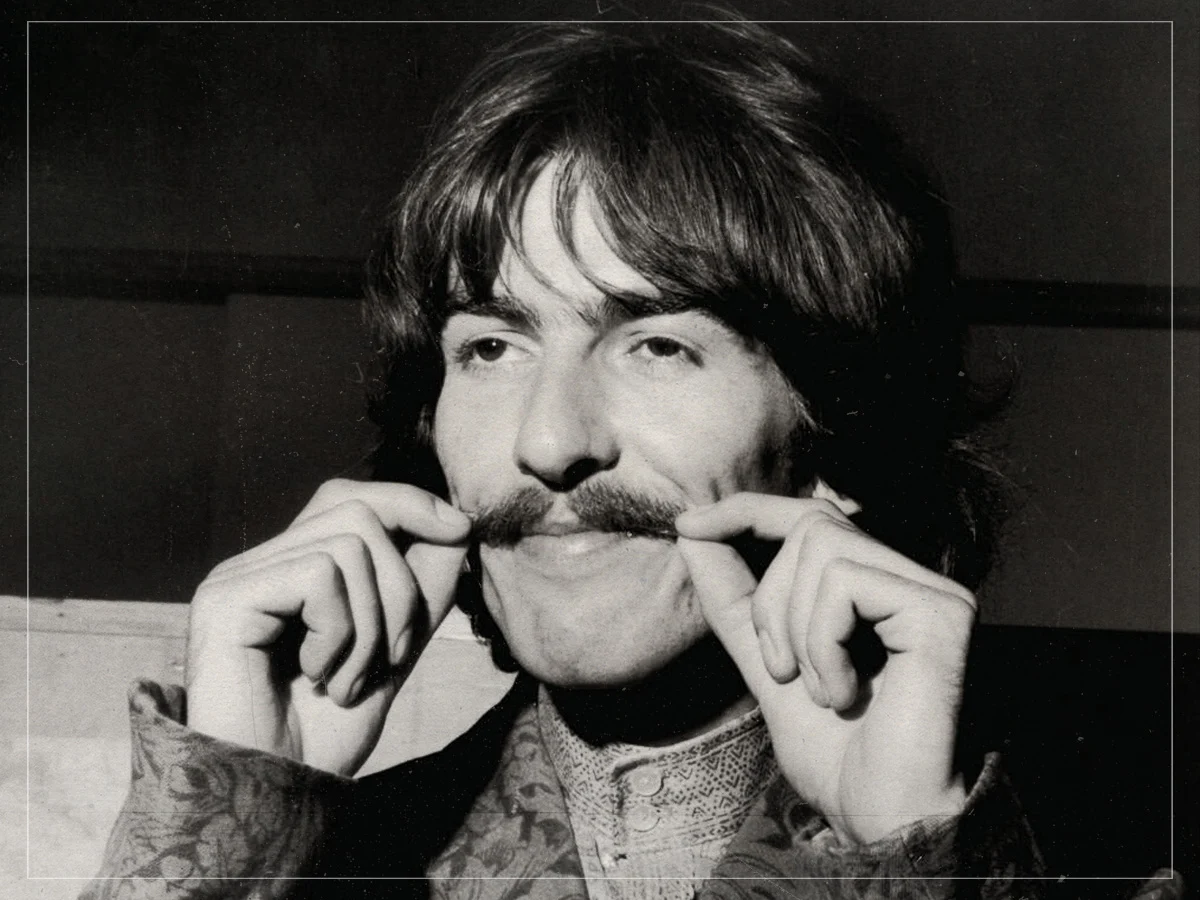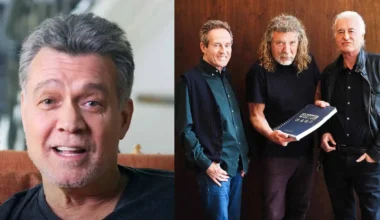The Beatles are one of the most prominent figures of the 1960s trend toward Eastern philosophy and culture, but as Paul McCartney revealed in an interview with David Lynch, the Fab Four had Pattie Boyd to thank for this career- and life-changing shift. Unsurprisingly, Pattie’s then-husband, George Harrison, would be the Beatle most attuned to Eastern practices like transcendental meditation.
But the rest of the band was incredibly receptive to the process, too, thanks in no small part to their guru’s giggling sense of humor and the sense of experimentation that permeated their decade together as a band.
George Harrison’s Wife Was Seeking Spiritual Awakening
While Paul McCartney, George Harrison, Ringo Starr, and John Lennon were away on tour, Harrison’s then-wife, Pattie Boyd, was desperate for a spiritual purpose. In her memoir, Wonderful Tonight, Boyd recounted combing through the newspaper for something for her and a friend to do that would be spiritually enlightening. They found what they were looking for in the form of a transcendental meditation class at London’s Caxton Hall. The class covered the foundation of the Indian practice popularized in the West by Maharishi Mahesh Yogi, a guru who would come to be an important figure in the Beatles’ sonic and personal developments.
“I loved meditating, and I found the effects remarkable,” Boyd wrote. “I really did feel more alert and energetic. It did what it said on the bottle. It was life-changing. I couldn’t wait to tell George. As soon as he came home, I bombarded him with what I had been doing. Then, joy of joys, I discovered that Maharishi was coming to London in August to give a lecture at the Hilton Hotel. I was desperate to go, and George said he would come, too.”
Harrison didn’t have to do much to convince the rest of the band to accompany them to the Hilton Hotel. McCartney had already heard of Maharishi from the yogi’s several televised appearances in previous years. Lennon and Starr were curious, too. Jane Asher, Paul McCartney’s partner at the time, also came along. “Maharishi was every bit as impressive as I thought he would be,” Boyd wrote.
Paul McCartney Reflects On How Pattie Boyd Changed The Beatles
Decades later, Paul McCartney sat down with director David Lynch, the latter of whom had also developed a reputation for his love of transcendental meditation. A giddy-looking Lynch began his interview with McCartney by asking the former Beatle questions about the practice, including when he first heard of it and what his thoughts were about it. Recalling the moment Pattie Boyd spoke of in her memoir, McCartney described George Harrison’s then-wife inviting the group to attend a lecture by Maharishi in London.
“I was personally not in a good place,” McCartney said. “I think, you know, just overdoing it in the ‘60s. So, I was just not very centered, and I was looking for something. I think we all were.” McCartney said watching Maharishi on television as youngsters in Liverpool also added to the allure of attending the presentation, as the Beatles had all been taken with the yogi’s giggly demeanor and sense of humor. (Humor was, after all, highly important to the Fab Four.)
McCartney said Maharishi’s presentation was “interesting” and “very calming,” noting that his ability to combine transcendental meditation practices and humor made him more relatable than other practitioners. The Beatles’ dedication to meditation would make its way into the final years of the Fab Four’s musical catalogue, particularly in Harrison compositions like “I Me Mine” and “Within You Without You.”
Of course, it’s impossible to say what could’ve happened had Boyd not found that fateful newspaper advertisement for a meditation class while the band was off on tour. But her doing so certainly set the group off on a new course that would change their careers and lives forever.
